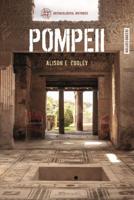Publisher's Synopsis
Rock-art - the ancient images which still scatter the rocky landscapes of Europe - is a singular kind of archaeological evidence. Fixed in place, it does not move about as artefacts as trade objects do. Enigmatic in its meaning, it uniquely offers a direct record of how prehistoric Europeans saw and envisioned their own worlds.
European Landscapes of Rock-Art provides a number of case studies, covering arange of European locations including Ireland, Italy, Scandinavia, Scotland and Spain, which collectively address the chronology and geography of rock-art as well as providing an essential series of methodologies for future debate. Each author provides a synthesis that focuses on landscape as an essential part of rock-art construction. From the paintings and carved images of prehistoric Scandinavia to Second World War grafitti on the German Reichstag, this volume looks beyond the art to the society that made it.
The papers in this volume also challenge the traditional views of how rock-art is recorded. Throughout, there is an emphasis on informal and informed methodologies. The authors skilfully discuss subjectivity and its relationship with landscape since personal experience, from prehistoric times to the present day, plays an essential role in the interpretation of art itself. The emphasis is on location, on the intentionality of the artist, and on the needs of the audience.
This exciting volume is a crucial addition to rock-art literature and landscape archaeology. It will provide new material for a lively and greatly debated subject and as such will be essential for academics, non-academics and commentators of rock art in general.










